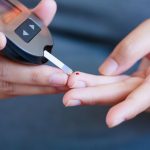
New research uncovers a possible reason why teenaged girls struggled so mightily with their mental health during the pandemic: Scans showed their brains aged far faster than expected during that stressful time, even faster than the brains of their male peers. In the study, published Monday in the Proceedings of the National Academy of Sciences, scientists measured cortical thinning, a process where redundant brain synapses are pruned and the outer layer of the cortex is thinned. While some experts believe this process is simply the brain rewiring itself for efficiency as it matures, it is known to accelerate in stressful conditions. That speeded thinning is also linked to depression and anxiety. How did the researchers discover that unusual thinning? After pandemic shutdowns started to lift, scans taken in 2021 showed that both boys and girls had experienced rapid cortical thinning during that period. But the thinning was far more pronounced in girls, whose thinning had accelerated, on average, by 4.2 years ahead of what was expected. Meanwhile, the thinning in boys’ brains had accelerated only 1.4 years ahead of what was expected. The greater impact on female brains could have been be due to differences in the importance of social interaction for girls versus boys, said senior study author Patricia Kuhl, director of the Institute for Learning and Brain Sciences at the University of Washington. Teenaged girls rely… read on > read on >

















-150x150.jpg)